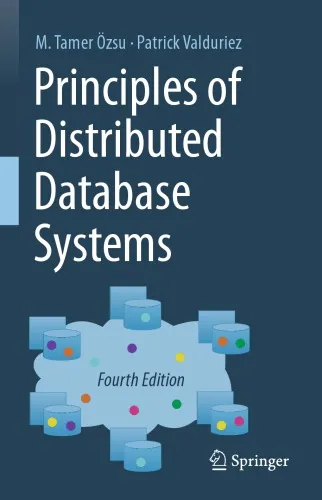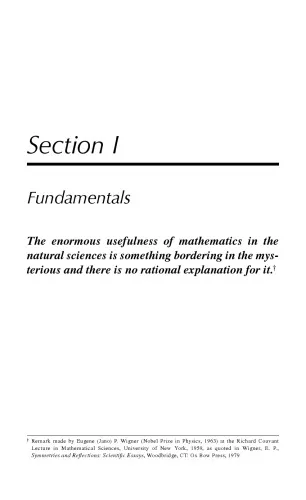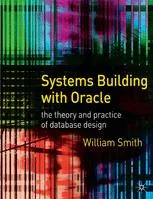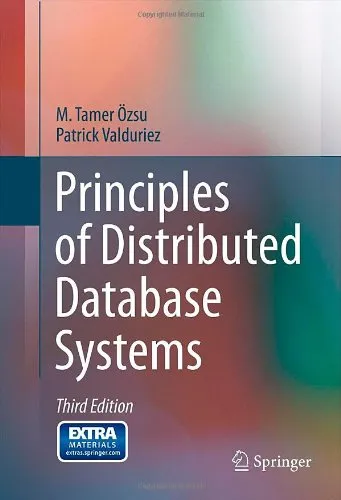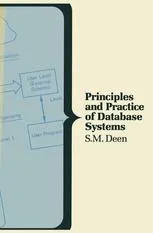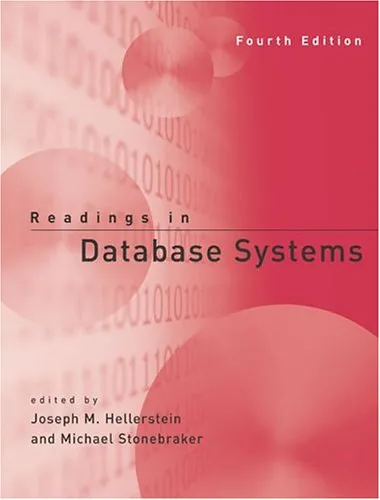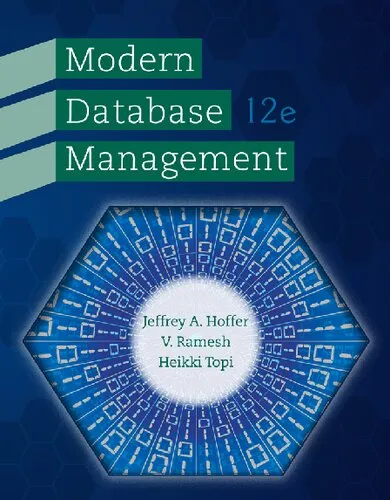Principles Of Distributed Database Systems
4.5
Reviews from our users

You Can Ask your questions from this book's AI after Login
Each download or ask from book AI costs 2 points. To earn more free points, please visit the Points Guide Page and complete some valuable actions.Related Refrences:
Introduction to "Principles Of Distributed Database Systems"
"Principles of Distributed Database Systems" by M. Tamer Özsu and Patrick Valduriez is a seminal work in the field of distributed databases. As a comprehensive guide, this book delivers both theoretical foundations and practical techniques needed to design and manage distributed database environments effectively. Its authoritative coverage of the principles, algorithms, and design practices makes it a must-read for students, researchers, and professionals in the field of computer science, particularly those specializing in database systems or distributed computing.
Over the years, the field of distributed databases has undergone tremendous advancements, driven by an ever-increasing demand for scalability, fault tolerance, and data availability. This book has consistently evolved to address these advancements, offering updates that reflect the latest trends and technologies, such as cloud computing, big data systems, and blockchain. It bridges the gap between academic concepts and real-world applications with a clear, structured approach, making complex issues accessible to its readers.
Detailed Summary of the Book
The book is structured to provide an in-depth understanding of distributed databases, starting with fundamental concepts such as distributed database architecture, data distribution, and replication. It meticulously explains the trade-offs involved in building distributed systems, highlighting the challenges of consistency, availability, and partition tolerance (CAP theorem).
Core topics covered include distributed query processing, optimization, and transaction management. The authors explore advanced subjects like concurrency control protocols, deadlock handling, and distributed recovery mechanisms. The book also delves into the intricacies of system design, offering insights into distributed directory management, data security, and semantic integrity control.
In later chapters, the book expands its scope to contemporary developments such as distributed object databases, parallel databases, NoSQL databases, and cloud data management systems. Each chapter is enriched with diagrams, pseudocode, and illustrative examples to facilitate better understanding, ensuring that the materials are digestible for both beginners and seasoned practitioners.
Key Takeaways
- Comprehensive understanding of distributed database system architectures and their components.
- Deep dive into distributed query processing and optimization techniques.
- Expert knowledge of distributed transaction protocols and concurrency control mechanisms.
- Insights into handling failures and ensuring reliability through recovery protocols.
- Exploration of modern distributed database trends such as NoSQL, big data platforms, and cloud-based storage solutions.
Famous Quotes from the Book
"A distributed database system is one where data is stored across multiple sites, and the system manages access, reliability, and efficiency as though it were a cohesive whole."
"The challenges in distributed databases stem not from distributing the data, but from making the distribution transparent and the system robust to failures."
Why This Book Matters
"Principles of Distributed Database Systems" is widely regarded as a foundational text in its domain because it combines a rigorous academic approach with practical relevance. The book has helped thousands of engineers and academics understand the complexities of distributed systems and equipped them to solve industry challenges.
In an era where data is more critical than ever, the principles and methods discussed in this book are essential. They provide the building blocks for designing scalable, high-performance systems and contribute to advancements in fields as diverse as finance, healthcare, social networks, and e-commerce. By mastering the contents of this book, readers gain a competitive edge in their careers and become better equipped to design systems that power the modern digital world.
Whether you are a student aspiring to enter database research or an engineer working on large-scale distributed systems, this book offers an invaluable repository of knowledge. Its depth, clarity, and relevance make it an enduring classic in the field.
Free Direct Download
You Can Download this book after Login
Accessing books through legal platforms and public libraries not only supports the rights of authors and publishers but also contributes to the sustainability of reading culture. Before downloading, please take a moment to consider these options.
Find this book on other platforms:
WorldCat helps you find books in libraries worldwide.
See ratings, reviews, and discussions on Goodreads.
Find and buy rare or used books on AbeBooks.
1405
بازدید4.5
امتیاز0
نظر98%
رضایتReviews:
4.5
Based on 0 users review
Questions & Answers
Ask questions about this book or help others by answering
No questions yet. Be the first to ask!
